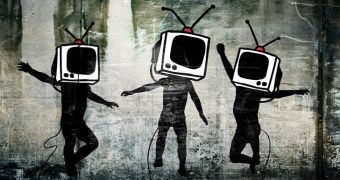Nothing you see on television is real. Nothing. Paradoxically, the realest thing on TV (allegedly), reality television, is the least real of all, with various insider accounts saying about 90 percent of the final cut being scripted and edited to high heaven. Even so, the remaining 10 percent is what could best be described as a tragic case of TMI (Too Much Information, in hip talk).
This week, we saw the series finale of Lindsay Lohan’s OWN docuseries, Lindsay, and the premiere of another docuseries, this time on Lifetime, focusing on Tori Spelling and her marital problems with Dean McDermott, who was caught cheating on her with some woman he picked up on a trip to Canada.
In between these two, we got to listen to celebrities talk about pregnancies and miscarriages, addiction, fame, money, the celebrity status, cheating, children, heartbreak, and love life. Lindsay cried her eyes out telling the camera that “no one knows this” about her miscarriage some time ago, and Tori cried her eyes out at having lost her best friend and at thinking she wasn’t good enough in bed for her man.
Then here comes Khloe Kardashian, whose sole credit to fame is that of being on a reality show, jokingly ripping into Tori for putting her marital woes on display (when she, Khloe, did the same just weeks ago): “I find this disgusting; that people let cameras film their entire personal lives! Especially through divorce. That's disgusting. Don't you people have morals? No morals or respect. I'm blown away people do this for a living.”
So, for the sake of argument, let’s just assume that more than 10 percent of what we see on reality television (or these docuseries that are so trendy right now, because they offer their leading stars the impressions that they’re doing something better than reality TV) is true.
In this case, these people are sharing details of their life we would probably feel awkward confiding in an acquaintance, i.e. someone we don’t necessarily consider a close friend. They’re talking to the camera and the millions of people tuning in at home about intimate and painful things, like a miscarriage or an unsatisfying love life, about pain and betrayal and the loss of confidence in the person you held most dearly.
This might sound cliché, but they’re literally selling their most personal details for a buck. They’re going public with stuff I wouldn’t commit to paper in a diary for fear the wrong person might come across it. And they’re ok with it. Even more, after some time has passed from this kind of revelations, they dare to ask for their privacy to be respected and they complain when they feel like it isn’t.
But we digress.
Thanks to reality shows, celebrities are the new exhibitionists. Under the label of “brave” for speaking up on their many problems (again, we’re still working under the assumption that they’re legit), they get to introduce us into their lives and even take us into their bed, though not literally. Yet.
Thanks to reality shows, we’re the new Peeping Toms, indulging shamelessly in man’s innate curiosity about a fellow human’s most intimate dealings. We watch people on the small screen cry, sob desperately, get into fights and rip other people’s hair off, and who knows what else, and we probably don’t even realize that a line has been crossed and there’s no going back from it: back in the day, it was called decorum; today, it’s best known as human decency.
The concept must be foreign to all those people who shamelessly promote their personal life as if it’s mass-produced merchandise but, by constantly tuning in to these shows, we run the risk of forgetting about it too.

 14 DAY TRIAL //
14 DAY TRIAL //